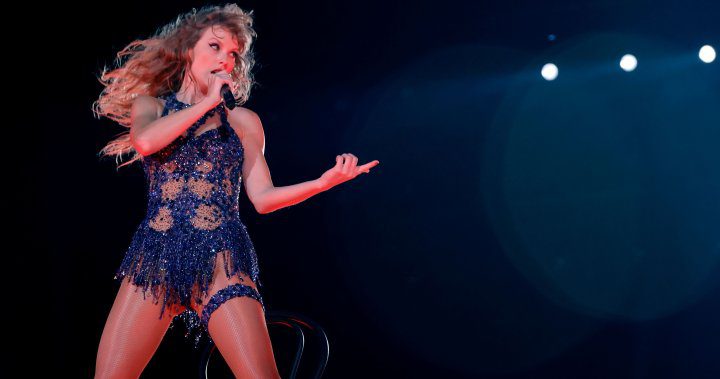[ad_1]
For nearly two years, COVID-19 noticed to it that there was no dwell music. Excursions stopped, roadies misplaced their gigs, venues suffered, and help workers had been laid off. However as soon as COVID restrictions had been lifted, the trade got here again to life, albeit with a non-insignificant diploma of issue.
For instance, Sum 41’s Deryck Whibley instructed me that after they returned to the street, they needed to do it old-school in a van as a result of no tour buses had been obtainable. Most had been parked for almost two years and weren’t roadworthy but. Provide and demand jacked the costs of any rental company that did have buses obtainable and people had been taken by acts who might afford it. Sum’s buses ended up going to Metallica.
There have been different issues. Many roadies who had been thrown out of labor left the trade and didn’t need to come again. Discovering sufficient sound and lightweight tools to hire was arduous. Many venues didn’t survive the lockdowns and had completely shut their doorways.
However this summer season has seen a return to The Earlier than Instances. Concert events and festivals have been packed. And at the same time as Taylor Swift and Beyonce are getting probably the most consideration for hoovering up a whole bunch and a whole bunch of hundreds of thousands of {dollars} in field workplace income, different acts are doing nicely.
On his present tour, Drake is enjoying in entrance of as many as 34,000 individuals an evening and lately turned the primary rapper to earn over US$5 million for a single present. Ed Sheeran’s BC Place gig on Sept. 2 attracted 65,601 individuals, breaking a 2009 report held by U2 set throughout their 360 Tour. The Weeknd broke attendance information in London by bringing in over 160,000 individuals over two nights. A swing by way of Australia noticed 120,000 be part of him for 2 nights in Brisbane, near 250,000 over three nights in Sydney, and someplace north of 150,000 for 2 exhibits in Melbourne.
My house market, Toronto, has seen unimaginable demand over the summer season with acts routinely backing 17,000 individuals into Dwell Nation’s Budweiser Stage. And woe to anybody attempting to get round downtown on an evening there’s a live performance at Scotiabank Enviornment, particularly when the Blue Jays have a house stand at Rogers Centre.
Dwell Nation and AEG, the world’s largest live performance promoters, are seeing report revenues. One estimate says that dwell music income in Canada will hit someplace round $1.3 billion with a projected annual progress fee of over three per cent. The common spend by a Canadian concertgoer is approaching $200.
So all’s good, proper? Largely, however …
Identical to each different sector of the economic system and society, the dwell music trade is coping with rising prices, greater insurance coverage premiums, greater rates of interest for financing excursions, servicing money owed left over from COVID-19, airfare and lodging wants, and different monetary pressures. There are tales about porta-potties being in such excessive demand that some festivals have been underserved. And there’s loads of opportunistic gouging, too. Somebody despatched me an image of an strange service car parking zone in Seattle that was charging $120 a spot for a Taylor Swift present.
Working a small-to-mid-sized venue is more and more troublesome as a result of there’s a restrict to how a lot operators can scale issues. It’s far simpler for Dwell Nation to juggle rising prices than it’s for a 250-capacity bar that wishes to characteristic dwell acts. These challenges are mirrored not solely in greater ticket costs however will increase on what we now have to pay for parking, concessions, and alcohol at exhibits.
Which brings me to Gen Z. These younger followers born between 1997 and 2012 are the lifeblood of so many dwell scenes. They appear particularly delicate to purchasing booze at gigs. Experiences are that they’re ingesting much less, placing an enormous kink into an vital income stream. Younger followers are both pre-drinking earlier than heading out or choosing a few edibles earlier than going to the present. Many are pursuing a extra straight-edge way of life, eschewing alcohol and medicines in pursuit of higher psychological well being. Since smaller venues vastly rely largely on bar gross sales for survival, there’s trigger for fear. And how are you going to fault Gen Z for imbibing much less of the demon alcohol?
Fewer gross sales on the bar have created a brand new drawback: merch cuts.
An vital income stream for artists is the sale of T-shirts and different memento ephemera at exhibits. As a result of these gross sales take up flooring house, venues demand a lower of gross sales. To compensate for greater prices and decrease alcohol gross sales, venues are demanding that they get extra of a style. It’s not unusual for a street supervisor to fork over 15 to 25 per cent of gross gentle good gross sales (T-shirts and the like) together with further vig on issues like CDs and vinyl. These charges are sometimes negotiable, however likelihood is the artist will find yourself paying one thing to the venue.
Jeff Rosenstock, an American singer who’s been on the street for a lot of the summer season, is aware of this all too nicely. He’s been documenting how a lot he’s needed to fork over for merch cuts.
It’s actually arduous to take sides as a result of each the small-to-medium-sized artist and the small-to-medium-sized venue are scuffling with inflation, elevated rents, a bounce in taxes, and better labour prices. Greater performers additionally should pay these charges but it surely’s actually simpler for a Taylor Swift to roll with the adjustments than it’s for a punk band travelling from present to point out in a 1977 Ford Econoline van and current on leftover hotdogs scavenged from 7-11.
There are different points afoot. Dec. 31 is the deadline for repaying Canadian Emergency Enterprise Account (CEBA) loans. Many venues throughout Canada had been relying on that hand-up to outlive by way of 2020 and 2021. The Canadian Dwell Music Affiliation is fearful that a few of its members gained’t be pay again these loans in time. If that occurs, then what? In the meantime, governments are additionally making noises about chopping again on the sum of money they get to the humanities sector. That may inevitably impression the dwell music trade.
Excessive costs are right here to remain. What lies forward? Let’s study that.
Followers may have to select between saving up their cash to see an enormous act or utilizing that very same money to see a number of smaller exhibits. Music residencies are additionally rising in popularity. As an alternative of artists travelling the world to succeed in their followers, extra are opting to arrange in a given metropolis and have followers come to them. If, for instance, you’re a Canadian fan of U2, your solely present choice to see them is to pay huge American {dollars} for tickets to their residency on the MSG Sphere in Las Vegas. Plus fork out more money for airfare, resort, and meals, in fact. Different acts are keen to play in venues like casinos. A minimum of two main Ontario casinos opened new efficiency areas this yr, a development that we’re seeing throughout the continent. Once more, this places the journey burden on the fan.
Again on the artist aspect, there’s the rising lure of enjoying company gigs. This has no bearing on the typical live performance fan and is usually restricted to well-off acts who’re completely satisfied to take a few million {dollars} from some tech bro to play at an organization retreat. However such paydays typically create a nasty odor if phrase leaks out to the fanbase.
So the place will we go from right here? How far can acts and promoters push us? Inflation and rates of interest are prompting everybody to have a look at their discretionary spending. Leisure is normally one of many first issues that will get lower.
Once more, the large acts, the large venues, and the large promoters will most likely find yourself doing simply superb. However what concerning the little man? I suppose we’ll see.
— with recordsdata from FYIMusicNews.ca
[ad_2]








